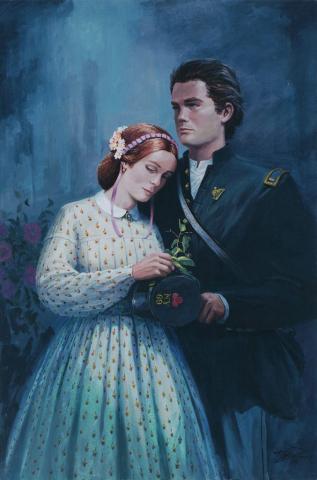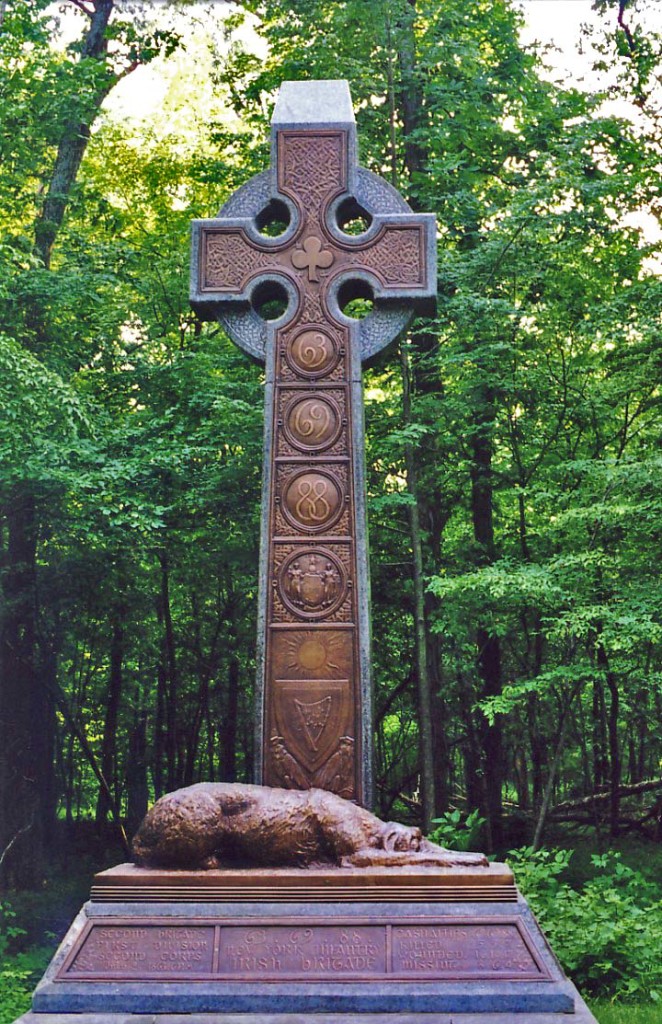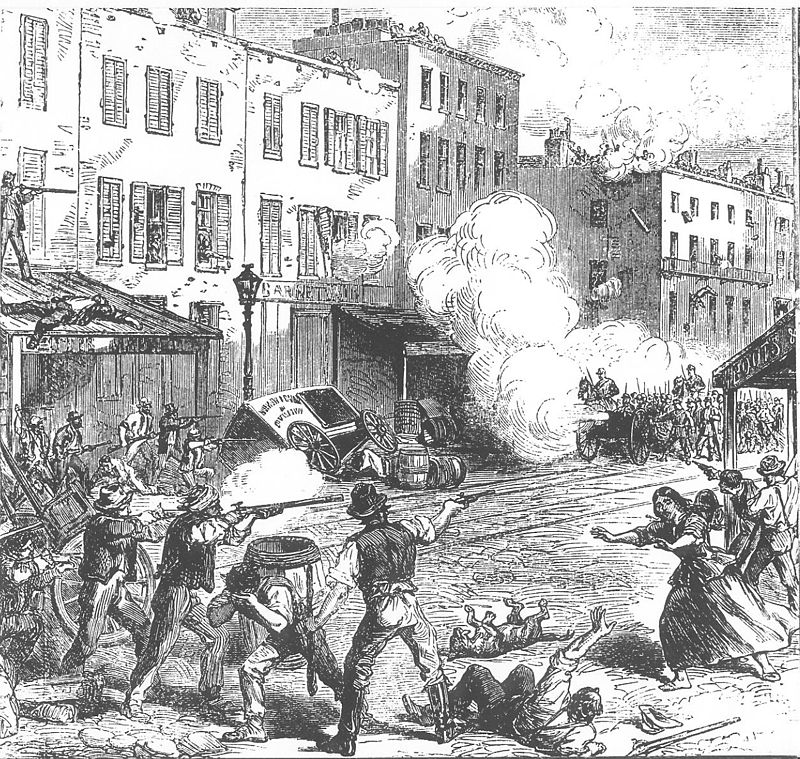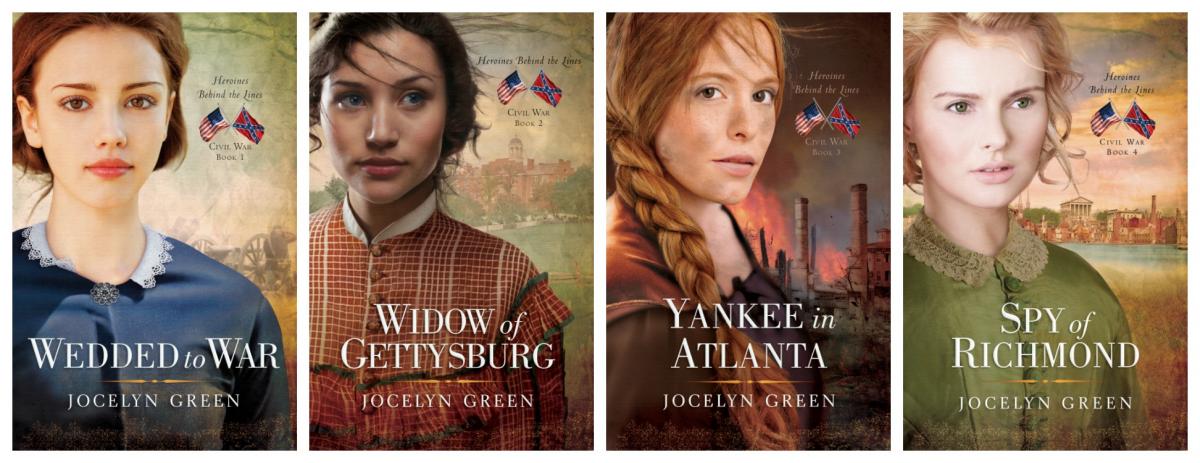
I didn't expect to become so fascinated with the plight of Irish Americans when I began writing my first Civil War novel, Wedded to War. But as I researched 19th-century New York City, where my heroine Charlotte Waverly lived, I was totally drawn in to the story of how "the other half" lived. My heart broke as I read about immigrants trying to make ends meet in the city, and how Irish soldiers' families struggled to survive when the paychecks were not forthcoming. I created the character of Ruby O'Flannery to show a contrast between the privileged women of New York City, who had to fight to get their hands dirty as nurses, and the immigrant women whose hands were dirty with work all the time, and yet never seemed to have enough. Ruby's husband Matthew fought in the very real and very Irish 69th New York regiment. The 69th fought honorably at First Bull Run, the Seven Days Battle, Malvern Hill, Antietam, Fredericksburg, Chancellorsville, Gettysburg, and was present at Lee's surrender at Appomattox.
Ruby's story in Wedded to War captured so many readers' hearts they begged me to finish her story in a future novel, which is why she comes back in Yankee in Atlanta, the third book in the Heroines Behind the Lines Civil War series. Toward the beginning of Yankee, we see through Ruby's eyes another piece of Irish American history: the New York City draft riots of July 1863. It was the largest civil and racial insurrection in American history, aside from the Civil War itself. What began as a protest against the draft which called up working-class Irishmen devolved into a race riot against free blacks of New York City, who were not eligible to be drafted at all. The four-day riot killed hundreds of people, destroyed blocks of property, and ended only when Union troops came to quell the violence with howitzers, muskets, and bayonets.
Seven Union generals were Irish-born while an estimated 150,000 Irish-Americans fought for the Union during the war. Although significantly fewer Irish lived in the Confederacy, six Confederate generals were Irish-born. There is no doubt that Irishmen and the families who supported them made a significant impact in the Civil War.





Comments
Great information! I think I
Terrific! I'm glad it's
Love this! Many of my
Hi Randi, I'm so glad this
Thank you! I appreciate the
This is such interesting
It's my pleasure, Courtney!
Very interesting. I love the
Add new comment